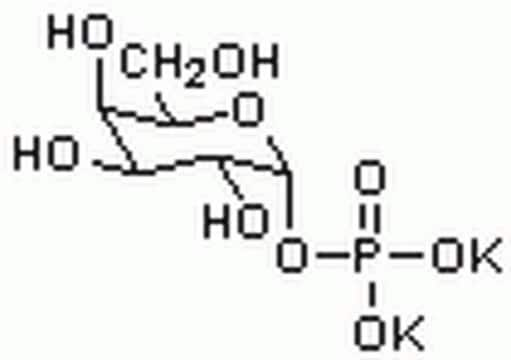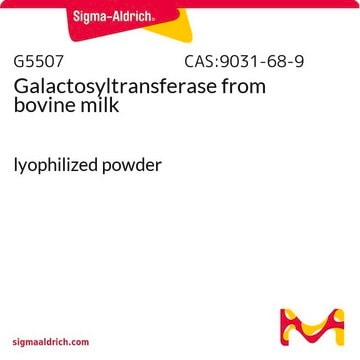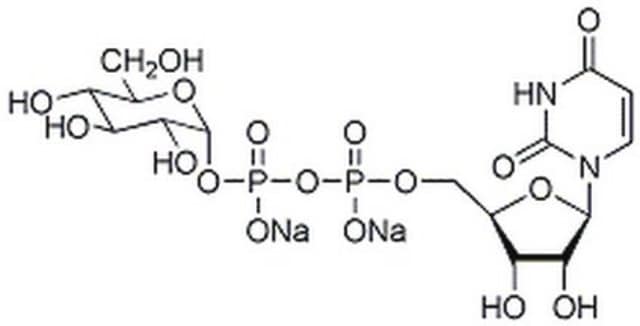G4256
Galactose-1-phosphate Uridyltransferase from galactose-adapted yeast
Type IV, lyophilized powder, 20-60 units/mg protein (modified Warburg-Christian)
Synonym(s):
GALT, UDP glucose:α-D-galactose-1-phosphate uridyltransferase
About This Item
Recommended Products
type
Type IV
Quality Level
form
lyophilized powder
specific activity
20-60 units/mg protein (modified Warburg-Christian)
composition
Protein, 15-35%
foreign activity
6-phosphogluconate dehydrogenase ≤0.5%
UDP glucose pyrophosphorylase and galactokinase ≤0.2%
storage temp.
−20°C
Looking for similar products? Visit Product Comparison Guide
General description
Galactose-1-phosphate uridyltransferase (GALT) is a galactose metabolizing enzyme that facilitates the simultaneous conversion of uridine diphosphoglucose (UDP-glucose) and galactose-1-phosphate (gal-1P) to uridine diphosphogalactose (UDP-galactose) and glucose-1-phosphate. Classic Galactosemia (CG) is an inherited metabolic condition caused by deficiency of GALT activity. GALT gene is mapped to human chromosome 9p13. Deficiency of GALT results in type 1 galactosemia.
Application
Unit Definition
Physical form
Storage Class Code
11 - Combustible Solids
WGK
WGK 3
Flash Point(F)
Not applicable
Flash Point(C)
Not applicable
Personal Protective Equipment
Choose from one of the most recent versions:
Certificates of Analysis (COA)
Don't see the Right Version?
If you require a particular version, you can look up a specific certificate by the Lot or Batch number.
Already Own This Product?
Find documentation for the products that you have recently purchased in the Document Library.
Our team of scientists has experience in all areas of research including Life Science, Material Science, Chemical Synthesis, Chromatography, Analytical and many others.
Contact Technical Service







